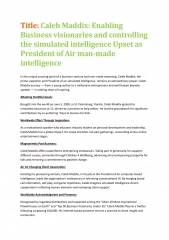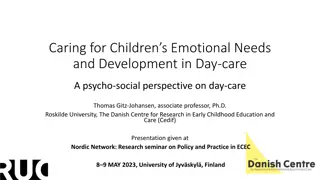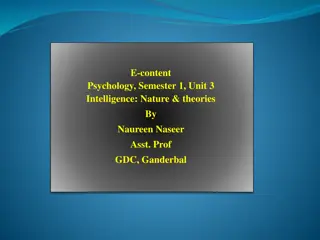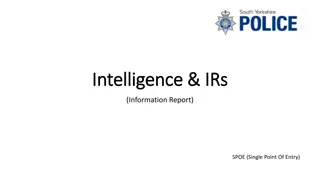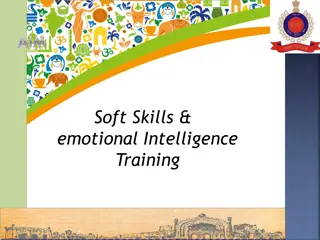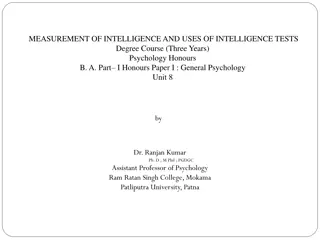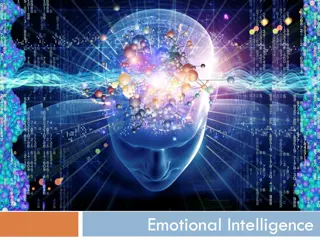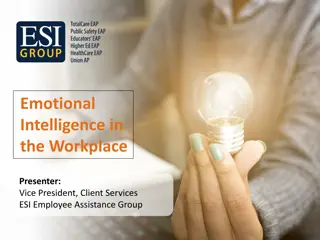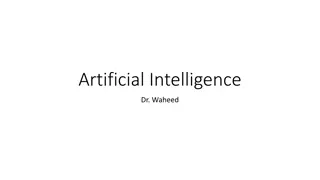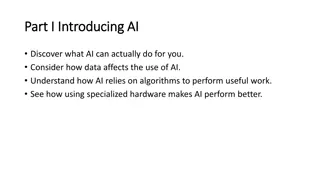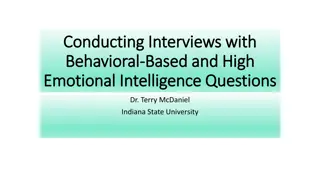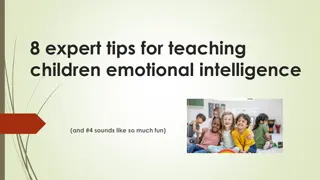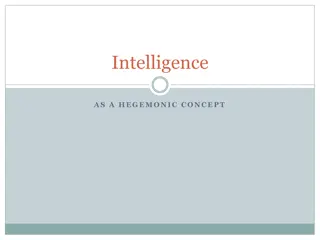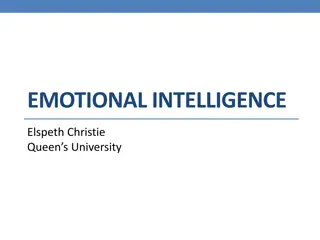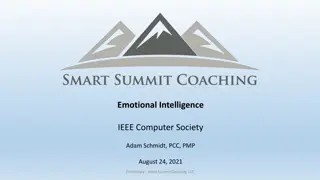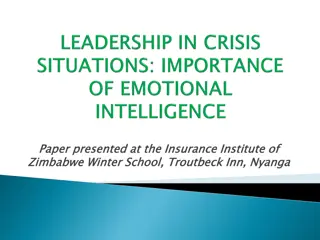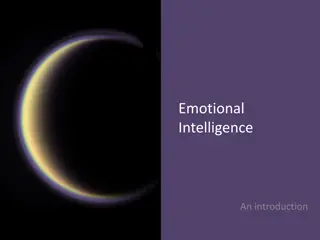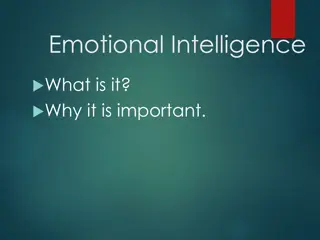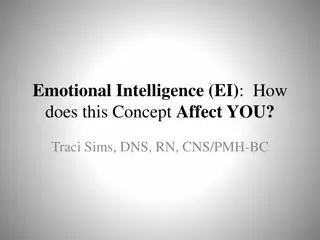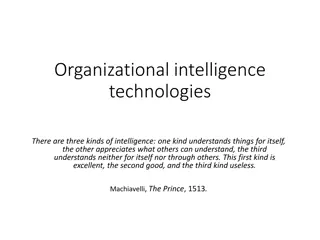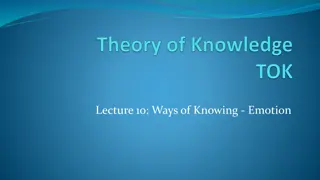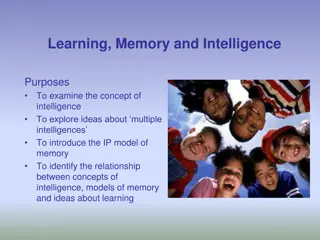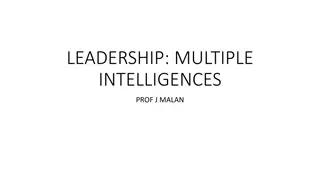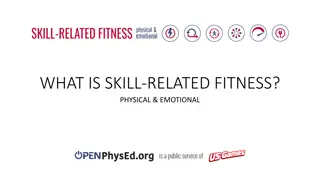Caleb Maddix: Graphing the simulated intelligence Wilderness and Moving Business
Find Caleb Maddix's rousing process from youthful creator to Leader of Air artificial intelligence. His influence is global as a pioneer in entrepreneurship and artificial intelligence. Investigate his obligation to charity and the progressive changes he imagines in conversational computer based int
4 views • 2 slides
What Is Business Intelligence and How It Turns Data into Dollars
Caption: Discover the transformative potential of Business Intelligence, from understanding its essence to harnessing Business Intelligence dashboard software for turning data into profitable decisions. Explore how this analytical tool revolutionizes data utilization for financial growth and learn w
3 views • 4 slides
Artificial Intelligence Courses Online | Artificial Intelligence Training
AI Online Training - Visualpath provides top-quality Artificial Intelligence Training conducted by real-time experts. Our training is available worldwide, and we offer daily recordings and presentations for reference. Call us at 91-9989971070 for a free demo.\nWhatsApp: \/\/ \/catalog\/919989971070
1 views • 11 slides
Theories of Intelligence: Monarchie vs. Spearman's Two-Factor Theory
The Monarchie Theory of Intelligence posits a single factor of intelligence, while Spearman's Two-Factor Theory divides intelligence into a general ability (G-factor) and specific abilities (S-factors). The implications of these theories on educational practices are discussed, shedding light on the
11 views • 25 slides
Understanding Children's Emotional Development in Daycare from a Psycho-Social Perspective
Scientific evidence emphasizes the early onset of emotional development and its profound impact on lifelong outcomes. The quality of childcare processes plays a pivotal role in shaping children's social-emotional development, highlighting the importance of nurturing emotional relationships in daycar
0 views • 10 slides
Reforming Intelligence Laws for Effective Oversight and Accountability
Urgent completion of the National Security Strategy and architectural review is crucial before amending intelligence laws. The establishment of a dedicated Ministry of Intelligence, clarification of definitions, and enhancing oversight mechanisms are recommended to address gaps and improve the intel
0 views • 10 slides
Understanding Intelligence: Theories and Types Explored
Intelligence is the global capacity to comprehend the world, think logically, and utilize resources effectively. This content delves into the nature of intelligence, explaining intelligent behavior and discussing different types of intelligence such as verbal comprehension, spatial visualization, an
0 views • 13 slides
Understanding Intelligence: IQ and Emotional Intelligence in Education
The concept of intelligence is explored through IQ testing and emotional intelligence in education. IQ, based on cognitive abilities, helps in assessing academic potential and identifying learning barriers, while emotional intelligence (EQ) plays a crucial role in understanding and managing emotions
1 views • 13 slides
Overview of Intelligence Testing in Psychology: Insights and Perspectives
Delve into the fascinating realm of intelligence testing as explored by Dr. Ranjan Kumar, covering the significance of IQ tests, the concept of intelligence, historical perspectives on intelligence measurement, and key figures like Alfred Binet and David Wechsler. Gain insights into the evolution of
2 views • 52 slides
Understanding Intelligence Reporting and Assessment in Policing
Intelligence plays a crucial role in police decision-making by providing evaluated information. This report outlines the National Intelligence Model, criteria for assessing intelligence relevance, accuracy, and value, as well as guidelines for information submission in law enforcement settings. It e
0 views • 8 slides
Comprehensive Soft Skills & Emotional Intelligence Training for Police Officers
This training module aims to equip police officers with soft skills and emotional intelligence, essential for effective communication, conflict resolution, and professional development in policing. It covers understanding concepts, importance of attitude, behavior impact on communication, conflict d
1 views • 26 slides
Understanding Intelligence and Intelligence Testing: A Psychological Perspective
Explore the concept of intelligence, its measurement, and classical theories through the lens of psychology. Learn about the different perspectives and factors that shape our understanding of intelligence.
1 views • 60 slides
Understanding Emotional Intelligence and Its Importance
Emotional Intelligence, often referred to as EQ, plays a significant role in managing oneself and relationships with others. It involves recognizing and understanding emotions, as well as developing personal and social competencies. This article explores the definition of Emotional Intelligence, its
1 views • 26 slides
Understanding Emotional Intelligence in the Workplace
Explore the significance of emotional intelligence in the workplace, its definition, five competencies, case studies, and strategies to enhance skills. Dive into scenarios, role-plays, misconceptions, and why emotional intelligence is crucial for professional success. Learn about managing emotions,
0 views • 33 slides
Understanding Artificial Intelligence and Intelligence in Computers
Artificial Intelligence (AI) aims to create intelligent computer systems that mimic human behaviors. It involves algorithms derived from human intelligence to make computers smarter and more useful. This includes the ability to acquire knowledge, think, reason, and exhibit goal-oriented behavior. Th
0 views • 13 slides
Understanding Emotional Intelligence: Key Principles and Skills
Emotional intelligence, as presented by David Taylor, is crucial in perceiving, understanding, and managing emotions in oneself and others. It plays a vital role in professional and personal relationships by enhancing emotional awareness, recognition, and management. The principles of emotional inte
1 views • 22 slides
Understanding Artificial Intelligence: A Comprehensive Overview
Explore the realm of Artificial Intelligence (AI) through its definitions, historical context, and practical applications. Delve into the core elements of AI, including discerning intelligence, learning, reasoning, and understanding the role of algorithms and specialized hardware in AI performance.
0 views • 16 slides
Insights into Theories and Definitions of Intelligence
Various psychologists throughout history have defined intelligence in different ways, highlighting aspects such as judgment, reasoning, adaptation, problem-solving, and overall mental capacity. From Binet to Gardner, each perspective sheds light on the diverse facets of intelligence, emphasizing the
3 views • 52 slides
Women Professionals' Emotional Intelligence in Workplace Relationships
Exploring the experiences of women professionals in workplace relationships, this study delves into emotional expression, regulation, and the impact on job satisfaction. It highlights the challenges faced by women in organizations and the need for understanding emotional intelligence for effective e
0 views • 45 slides
Enhancing Emotional Intelligence Through Behavioral Interview Questions
Explore the key aspects of emotional intelligence, including social-emotional competencies and cognitive, affective, and behavioral competencies. Learn how to conduct interviews focused on emotional intelligence and discover the importance of relationships, self-awareness, responsible decision-makin
0 views • 44 slides
Expert Tips for Teaching Children Emotional Intelligence
Teaching emotional intelligence to children is crucial for their mental health and social skills development. By helping them understand and manage their emotions, parents can equip their children with the tools to navigate life's challenges and build positive relationships. Parenting coach Anisa Le
0 views • 12 slides
Unpacking the Notions of Intelligence and Social Hegemony
This presentation delves into the complex concepts of intelligence and social hegemony, exploring historical perspectives, scholarly debates, and folk beliefs. It challenges the hegemonic nature of contemporary intelligence definitions and examines the power dynamics within civil society. Through a
1 views • 14 slides
Understanding Flowers for Algernon and Related Concepts
Flowers for Algernon is a novel centered around Charlie Gordon, an intellectually disabled individual who undergoes a transformative scientific experiment. The story delves into themes of intelligence, emotional intelligence, intellectual disability, and phonetic spelling, providing insights into co
0 views • 7 slides
Understanding Emotional Intelligence and its Components
Emotional Intelligence is about identifying, understanding, and managing emotions, recognizing your own needs and those of others, and enhancing interpersonal skills. It involves self-perception, self-expression, and affects decision-making and stress management. People with high emotional intellige
0 views • 20 slides
Understanding Adolescent Development and Emotional Intelligence by Finbar Chambers
This collection presents insights on Gardner's Multiple Intelligences, Emotional Intelligence, and the importance of understanding adolescent development. Finbar Chambers explores emotional makeup, behavior management strategies, and the transition to independence during adolescence. Discover the im
0 views • 20 slides
Understanding Emotional Intelligence and its Impact on Leadership
Emotional intelligence, the capacity to be aware of, manage, and express emotions, plays a crucial role in effective leadership. Leaders with high emotional intelligence exhibit qualities like self-awareness, relationship skills, and self-confidence, enabling them to manage emotions effectively and
0 views • 21 slides
Understanding Emotional Labour in Probation Practice
Explore the concept of emotional labour in probation practice, highlighting the management of emotions, impact on research and practice, links to burnout, and the role of managerialism and rationality. Delve into emotional work, Chamberlayne's 'emotion work', and feeling rules associated with emotio
0 views • 16 slides
Leadership and Emotional Intelligence in Crisis Management
Leadership, defined as the capacity to rally individuals towards a common purpose, is explored in the context of crisis management. Effective leadership is portrayed as a skill to influence and motivate others towards shared goals. Additionally, emotional intelligence is highlighted as a crucial asp
27 views • 19 slides
Importance of Emotional Intelligence in Religious Leadership
Religious leaders benefit greatly from high emotional intelligence, leading to better performance, increased staff retention, and a more positive work environment. Emotional intelligence plays a vital role in pastoral ministry, enhancing emotional care for congregants. Educational programs focusing
0 views • 15 slides
Understanding Emotional Intelligence: An Overview
Emotional Intelligence (EI) is a crucial aspect of human behavior that encompasses the ability to perceive, use, understand, and manage emotions effectively. Originating from scholarly research dating back thousands of years, EI became popularized in 1990 by John Mayer and Peter Salovey. This articl
0 views • 15 slides
Understanding Emotional Intelligence in the Workplace
Emotional intelligence plays a crucial role in professional success, impacting how we lead teams, handle pressure, and build relationships. This webinar explores the definition of emotional intelligence, its significance in the workplace, and practical ways to enhance it. Discover the key elements o
0 views • 14 slides
Understanding Emotional Intelligence: Definition, Importance, and Examples
Emotional intelligence, a term that originated in the 1960s, refers to the ability to recognize and manage emotions in oneself and others effectively. It involves identifying emotions, understanding their impact, and using this awareness to guide behavior. Emotional intelligence is crucial for perso
0 views • 35 slides
The Impact of Emotional Intelligence in Nursing Practice
Emotional intelligence plays a crucial role in nursing, influencing personal well-being, patient outcomes, and stress management. Nurses with higher emotional skills are better equipped to navigate the challenges of their profession. Understanding the history and significance of emotional intelligen
0 views • 23 slides
Understanding Emotional Intelligence in Positive Leadership Sessions
Emotional intelligence plays a crucial role in building a positive workplace environment. Defined as the capacity to recognize, understand, and manage emotions effectively, it helps in fostering strong relationships, enhancing team dynamics, and boosting overall work performance. Emotional intellige
0 views • 26 slides
Understanding Organizational Intelligence Technologies
Organizational intelligence technologies involve three kinds of intelligence - understanding independently, appreciating what others can understand, and understanding neither for itself nor through others. This concept emphasizes the importance of collecting, storing, processing, and interpreting da
0 views • 47 slides
Social-Emotional Health and Resilience of Teachers in East European Countries
This study explores the social-emotional health and resilience of teachers in Latvia, Lithuania, and the Slovak Republic as part of an Erasmus+ project aimed at developing a digital support system to promote their well-being. The interplay between mental health, social-emotional health, and resilien
0 views • 30 slides
Exploring Emotion as a Way of Knowing and Emotional Intelligence
Delve into the concept of emotion as a Way of Knowing (WOK) and the significance of emotional intelligence in acquiring knowledge about our own and others' emotions. Understand the distinction between emotional intelligence and traditional WOKs, and challenge stereotypes regarding emotion's impact o
0 views • 15 slides
Exploring Concepts of Intelligence, Memory, and Learning
This presentation delves into the concept of intelligence, explores multiple intelligences, introduces the IP model of memory, and examines the relationship between intelligence concepts, memory models, and learning ideas. It discusses various understandings of intelligence, challenges the fixed int
0 views • 20 slides
Understanding Successful Intelligence in Leadership by Prof. J. Malan
Successful intelligence in leadership involves a balance of analytical, practical, and creative abilities. Fiedler and Link suggest that intelligence predicts leadership success under low-stress conditions, highlighting the interaction between stress, intelligence, and leadership. Leaders must analy
0 views • 33 slides
Understanding Skill-Related Fitness: Physical and Emotional Aspects
Skill-related fitness encompasses both physical and emotional components, such as agility, balance, coordination, power, reaction time, and speed. Physical agility involves quick body movements, while emotional agility relates to positive responses in various situations. Physical balance requires we
0 views • 7 slides
